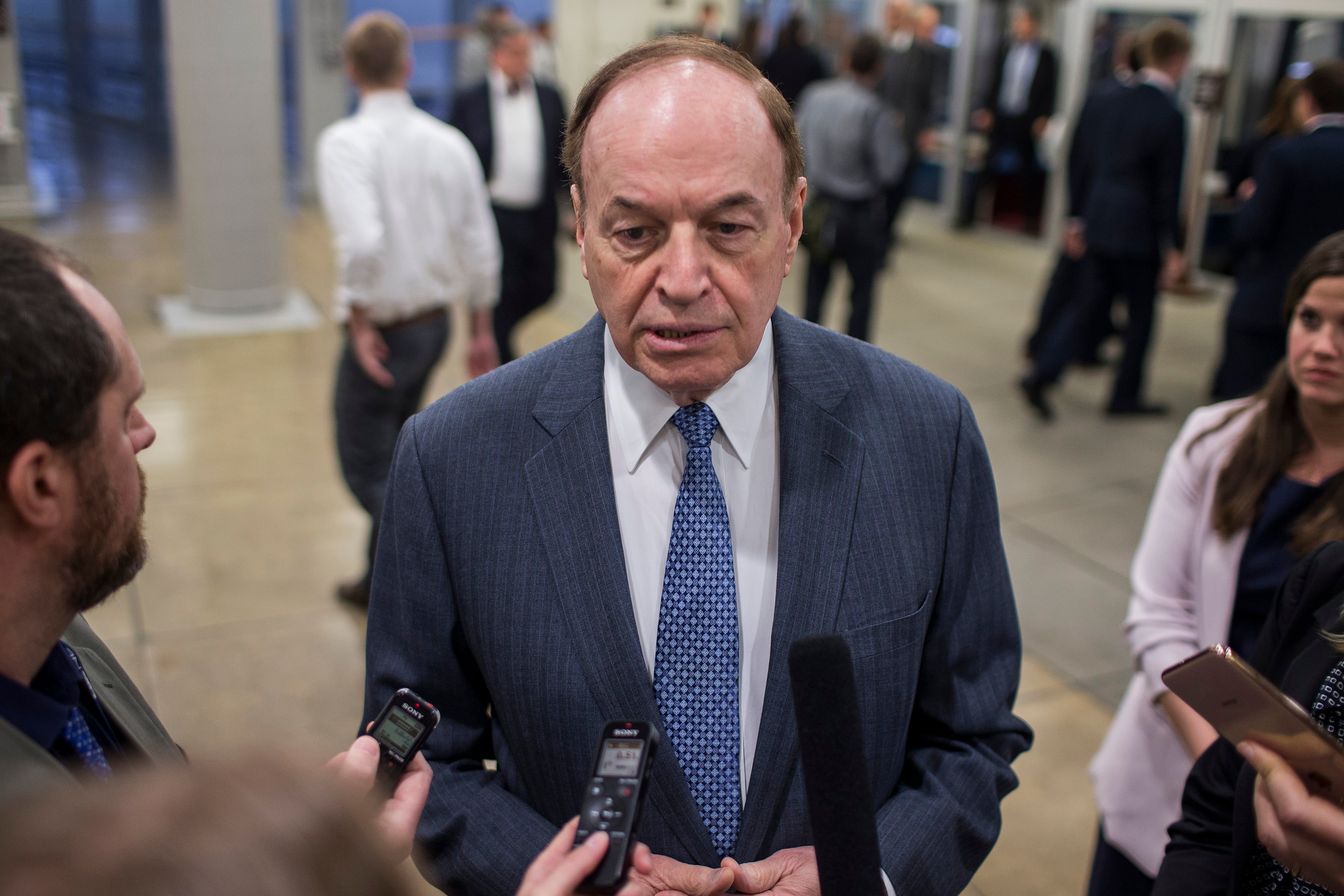WASHINGTON ― Senate Appropriations Committee on Thursday sent its $693 billion defense spending bill to the Senate floor and scuttled a Democratic amendment meant to bar Pentagon funds from being diverted to President Donald Trump’s border wall.
Typically a bipartisan measure, the Senate’s 2020 defense appropriations bill was the latest flashpoint in partisan fighting that has unraveled Senate Republican plans for speedy passage of spending bills before Oct. 1 to avoid a government shutdown. Senate Republican leaders now plan to pass as many bills as they can by the end of the fiscal year, then cover the rest of government with a stop-gap spending bill.
Senate Democrats have been fired up since the Pentagon earlier this month released the list of 127 projects deferred by the administration to devote $3.6 billion to the border wall, for a total of $6.1 billion this year. They argue the president’s plans will usurp Congress’s power of the purse and shortchange troops and military families who needed the new facilities.
Thursday’s partisan committee votes were not the end of the argument as the appropriations panel is expected to take up a narrower measure in the coming days to limit the president’s authority to transfer military construction funds. A bipartisan resolution introduced separately on Wednesday would force a vote on the Senate floor to cancel the border emergency that Trump invoked to move the money.
RELATED

Senate Appropriations Committee Vice Chairman Sen. Patrick Leahy, D-Vt., noted that Congress agreed to provide only $1.4 billion after last year’s 35-day government shutdown, and “not a penny more.” “The president has contorted the law beyond all recognition, and undone congressional funding decisions by fiat,” Leahy said.
Sen. Dick Durbin, the top Democrat on the defense appropriations subcommittee and Senate’s No. 2 Democrat, said Trump’s border wall maneuver placed the integrity of the administration’s defense budget request in question.
“We were told by the Department of Defense we need every dollar,” Durbin said. “We’re being taken for a ride for at least $7 billion in cushion money that the president is going to pull out of this [defense budget] for his wall.”
The Senate Appropriations Committee voted 15-16, along party lines, to send the defense spending bill to the Senate floor, prior to the vote on the Leahy-Durbin border wall amendment. Leahy said the overall defense appropriations bill was “a good bill” save for his strong opposition to the transfer of border wall funding.
RELATED

Outside the hearing, Sen. Lindsey Graham, an ally of the president and a senior appropriator, rapped Democrats for voting against the bill.
“You may not like the border wall, but that’s no reason to deny the men and women of the military the money they need to fight the fights we can’t afford to lose,” Graham, R-S.C., told reporters. “I really think it’s an emergency [on the border], and I’m really disappointed in my Democratic colleagues.”
The overall bill includes $622.4 billion in base funding, $70.7 billion in wartime spending, and $1.7 billion for storm damaged military bases.
“This is a strong bill,” said Senate Appropriations Committee Chairman Richard Shelby, R-Ala., who also chairs the defense sub-panel. “It continues increases in funding for our nation’s defense that meet the objectives of the National Defense Strategy by improving readiness, investing in innovation, and bolstering the combat effectiveness of the Department of Defense.”
Defense is not the only battleground for spending bills. The panel voted along partisan lines, 15-16, to reject Leahy’s alternative allocations, called 302(b)’s, which would have increased spending for Labor, Health and Human Services, Education, and Related Agencies and reduced it for the Department of Homeland Security.
Shelby postponed Thursday’s markup for the State, Foreign Operations and Related Agencies appropriations bill to forestall debate over Democratic amendments that Republicans view as “poison pill” policy provisions. Such provisions were barred under the terms of the bipartisan budget agreement struck in May, but there’s dispute between Democrats and Republicans over what the term “poison pill” should cover.
The Senate have to resolve its internal divisions to pass appropriations bills and then have to reconcile its bills with the House’s competing bills. Senate Majority Leader Mitch McConnell, who is an appropriator and appeared at the hearing, said he had hoped to pass a bipartisan package of bills that would have funded 70 percent of the government by Oct. 1.
McConnell, R-Ky., said he was praying for compromise between Leahy and Shelby, "that the curtains will part here and we will figure out a way to move forward―because I don’t think either side can take advantage of the other given the divided government that we have.”
Joe Gould was the senior Pentagon reporter for Defense News, covering the intersection of national security policy, politics and the defense industry. He had previously served as Congress reporter.








